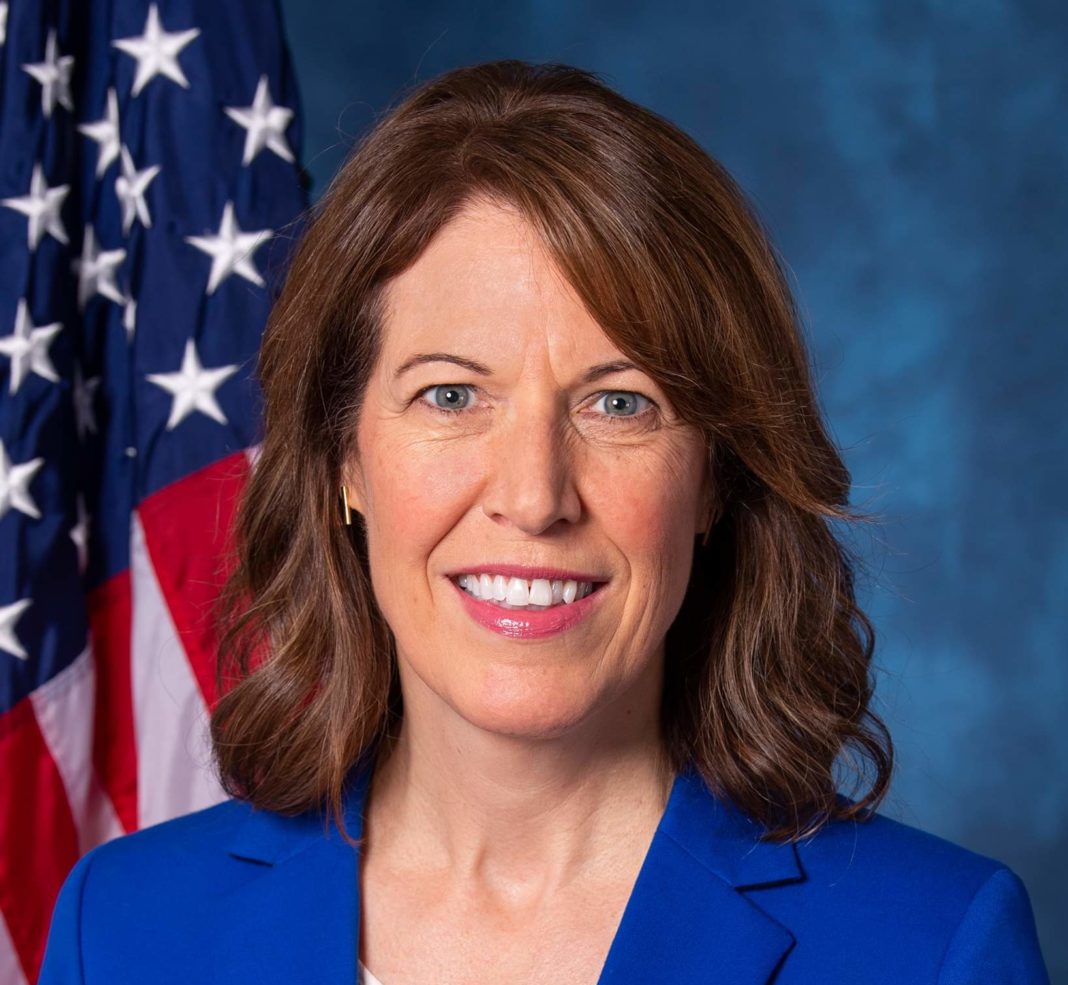Today, Rep. Cindy Axne (IA-03) wrote to Congressional leaders to urge them to bring up and pass her bipartisan and bicameral legislation that would expand Iowa families’ ability to pay for child care expenses by permanently doubling the amount of money families can place in dependent care assistance plans (DCAPs).
The Improving Child Care for Working Families Act would permanently increase the cap on how much families can place in their DCAPs to $10,500 in order to cover the current costs of child care. The DCAP contribution limit was raised to $10,500 as part of the American Rescue Plan in March 2021, but this change only applies for 2021.
“I write to encourage you to take up legislation to…make permanent the $10,500 contribution limit on DCAPs, currently in place for plan year 2021 only, instead of resuming a $5,000 contribution limit that was originally set in 1986,” Rep. Axne wrote. “In Iowa, child care costs average $8,633 annually… However, this $10,500 DCAP contribution limit will expire at the end of the year. If Congress fails to act, working families looking to set aside money for child care will be hamstrung by a $5,000 DCAP contribution limit put in place 35 years ago. Child care has only become more expensive since, and we cannot afford to blunt the impact of a tool families can use to help afford care for their children.”
According to the Economic Policy Institute, infant care in Iowa cost 18% more per year than in-state tuition for a four-year public college.
Child care also costs 12% more than average rent in Iowa.
Rep. Axne and Iowa Senator Joni Ernst introduced this legislation in March 2021 with Rep. Brian Fitzpatrick (PA-01) and Sens. Maggie Hassan (D-NH), Thom Tills (R-NC), and Kyrsten Sinema (D-AZ).
In October, the National Taxpayers Union (NTU) added this legislation to its annual “No-Brainer” list, which highlights ten pieces of bipartisan and commonsense legislation that NTU recommends Congress pass in 2021.
The legislation has been endorsed by Bipartisan Policy Center, Save the Children Action Network, Early Care and Education Consortium, Employers Council on Flexible Compensation, National Taxpayers Union, HealthEquity, Exceptional Persons Inc., Iowa Primary Care Association, Iowa Association of Business and Industry, Iowa Women’s Foundation, and Black Hawk County Child Care Coalition.
The full text of her letter can be found below:
Dear Speaker Pelosi, Leader Schumer, Leader McCarthy, and Leader McConnell:
As we approach the end of the year, I write to encourage you to take up legislation to ensure relief for families that contribute to a dependent care assistance plan, or DCAP, to help pay for child care does not expire. I specifically encourage you to make permanent the $10,500 contribution limit on DCAPs, currently in place for plan year 2021 only, instead of resuming a $5,000 contribution limit that was originally set in 1986.
DCAPs are an employer-sponsored benefit that allow working families to pay for eligible dependent care services—such as child care, before- and after-school care, and day camp—using pretax dollars. Employees may typically contribute no more than $5,000 annually to a DCAP, and these contributions are subject to an annual “use-it-or-lose-it” rule. DCAPs help many families save on child care expenses, and 43% of workers had access to DCAPs in 2021. That number includes 39% of private sector workers and 65% of state and local government workers.
Finding and affording child care was a challenge for families prior to COVID-19, and that challenge has only been heightened by the pandemic. In Iowa, child care costs average $8,633 annually. A typical Iowa family with one child and one infant in care can expect to pay $19,011 each year, or 28% of the family’s income. In a recent national survey of the child care industry, respondents reported widespread staffing shortages that are forcing them to serve fewer children, maintain a longer waitlist, reduce classroom hours, or close classrooms entirely. 89% of child care centers in Iowa, for example, reported experiencing a staffing shortage.
Recognizing the challenge to working families, Congress has passed multiple pieces of legislation containing much-needed relief for families budgeting for child care expenses, including DCAPs. Last year, as part of H.R. 133, the Consolidated Appropriations Act, 2021, Congress included provisions allowing for unused funds in DCAP accounts from 2021 to carry over into plan year 2022 and allowing for a 12-month grace period for DCAP accounts in plan 2021—thereby giving families more time to use their contributions. Earlier this year, Congress also included a provision raising the maximum allowable DCAP contribution to $10,500 for plan year 2021 as part of the American Rescue Plan Act.
However, this $10,500 DCAP contribution limit will expire at the end of the year. If Congress fails to act, working families looking to set aside money for child care will be hamstrung by a $5,000 DCAP contribution limit put in place 35 years ago. Child care has only become more expensive since, and we cannot afford to blunt the impact of a tool families can use to help afford care for their children.
I urge you to address this issue by taking up legislation such as H.R. 2121, the Improving Child Care for Working Families Act, that would permanently raise the DCAP contribution limit to $10,500. This bipartisan, bicameral legislation offers a commonsense solution to ensure working families do not suddenly lose the ability to set aside more of their hard-earned dollars to help pay for child care.
Child care is a key to our continued economic recovery, and Congress must therefore continue to advance any and all solutions to help make child care more affordable for working mothers and fathers.
Thank you for your consideration.
Sincerely,
Cindy Axne












